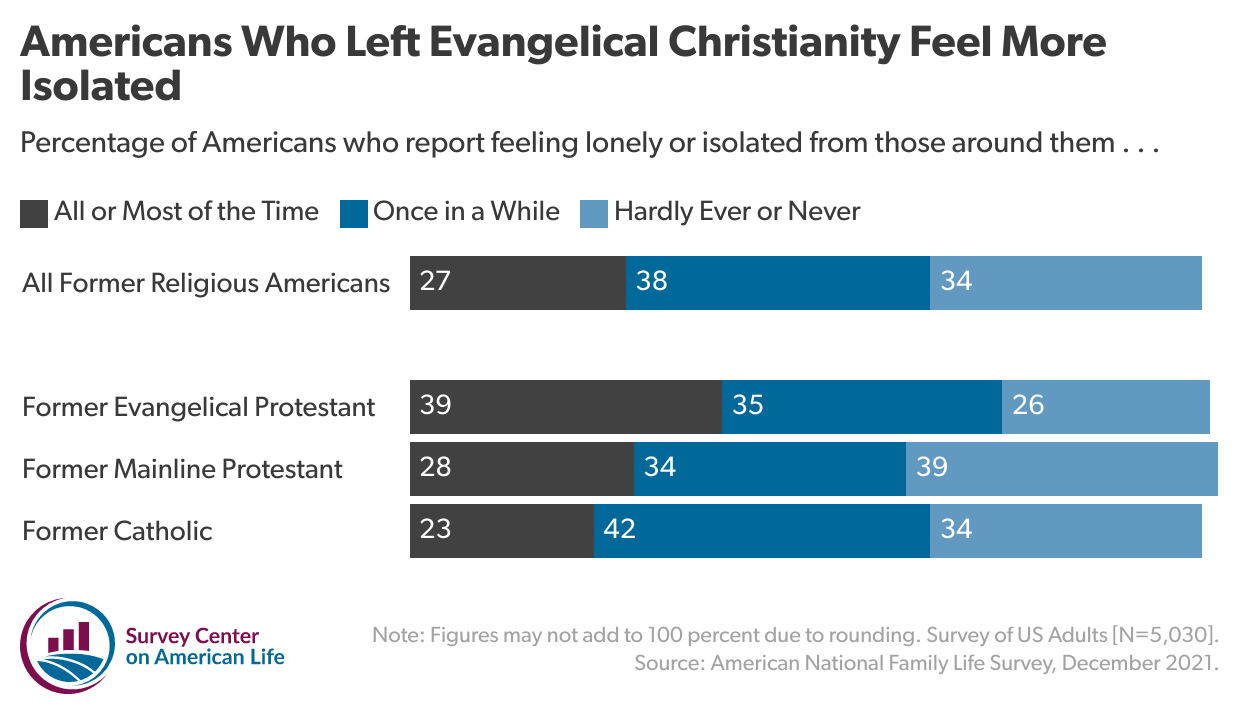Featured Data March 29, 2022
Religious Disaffiliation and Loneliness

The act of leaving religion can be difficult. Americans who leave their childhood religion report more acute feelings of social isolation and disconnection. This is especially true for those who disaffiliate from more conservative faith traditions. Nearly four in 10 (39 percent) former evangelical Protestants report feeling lonely or isolated from those around them all or most of the time. Significantly fewer former mainline Protestants (28 percent) and former Catholics (23 percent) say the same. This may be because leaving a religious community often results in severing important social ties and shredding systems of support. Past research has shown that members of conservative religious traditions often organize more of their social life through their church or place of worship. Given that many if not most of the people they know belong to the same place of worship, it’s not hard to see why leaving religion can result in increased feelings of social isolation and loneliness.








